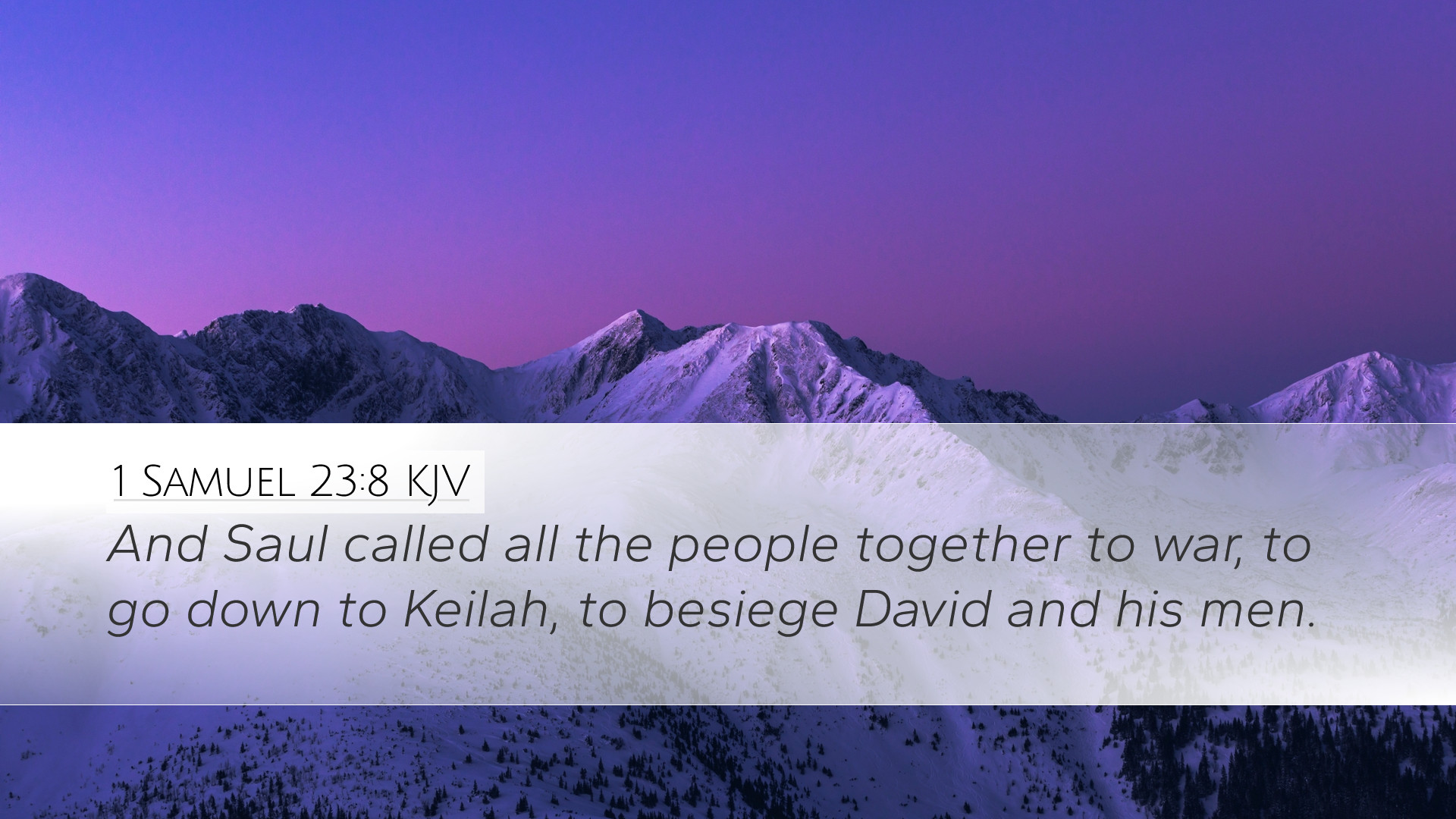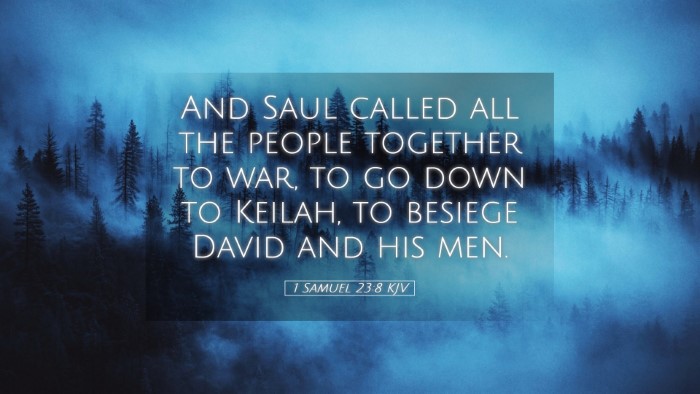Commentary on 1 Samuel 23:8
1 Samuel 23:8 states: "And Saul called all the people together to war, to go down to Keilah, to fight against David and his men." This verse serves as a pivotal moment in the narrative of David’s flight from Saul and reveals critical aspects of Saul's character and the unfolding conflict between these two figures.
Contextual Background
The passage occurs during a tumultuous time in Israel's history when Saul, the first king, is experiencing increasing jealousy and paranoia towards David. As David gains popularity due to his victories, especially his triumph over Goliath, Saul's fear of losing power intensifies.
Analysis of Saul's Actions
Saul's Call to Arms: Saul's decision to mobilize the army against David and the residents of Keilah reflects a desperate attempt to maintain control. Matthew Henry notes that this act indicates Saul's willingness to go to great lengths to eliminate his rival, illustrating the tragic descent of a leader who was once chosen by God for his humble beginnings.
Public Domain Insights: Albert Barnes emphasizes that Saul’s choice to confront David reveals his increasing instability and reliance on force rather than divine guidance. This militaristic approach contrasts sharply with David’s reliance on God for deliverance and guidance.
Theological Implications
This verse serves as a reminder of the spiritual battle present in leadership and the profound consequences of turning away from God's will. Adam Clarke comments on how Saul's actions not only threaten David but also endanger the innocent people of Keilah, highlighting the moral obligation of leaders to protect rather than destroy.
Understanding David’s Position
David finds himself in a precarious situation, surrounded by men who are equally apprehensive about Saul's intentions. The text serves as a foreshadowing of David’s own struggles with leadership and the complexities of being a man after God's own heart.
David’s Response
In the preceding verses, David seeks God's counsel before acting, contrasting Saul’s impulsive behavior. This crucial point underlines David’s character as one who prioritizes divine will over personal ambition. The commentary of Matthew Henry highlights that David’s strength comes from his intimate relationship with God, setting an example for leaders today.
The Role of Keilah
Keilah as a Symbol: The city of Keilah represents a microcosm of Israel’s struggle during this period. It is a fortified city that must reckon with external threats. Barnes suggests that the people of Keilah face a moral dilemma: whether to side with David, who is fleeing persecution, or to align with Saul, the king and representative of established power.
- Faith and Fear: The people of Keilah must navigate their faith in God while fearing the implications of siding against the king.
- Leadership in Crisis: The leadership crisis in Keilah mirrors broader themes within the nation of Israel, emphasizing the need for wise, godly leadership.
Lessons for Modern Readers
The narrative in 1 Samuel 23:8 offers profound lessons for pastors, students, theologians, and scholars:
- Divine Guidance: The importance of seeking God's will in times of trouble is paramount; leaders should derive their strategies from prayerful reflection rather than mere reaction.
- Moral Responsibility: Leaders must remember the ethical implications of their decisions and actions, particularly how they affect the innocent.
- God’s Sovereignty: Despite Saul's intentions, God’s overarching plan ultimately prevails, suggesting that practitioners and believers can trust in God’s control over chaotic circumstances.
Conclusion
1 Samuel 23:8 encapsulates the conflict that defines much of David's early life and sets the stage for future events that will culminate in his eventual ascension to the throne. It invites readers to reflect deeply on issues of power, integrity in leadership, and the vital role of divine guidance. In the face of opposition, the character and responses of both Saul and David provide timeless insights into the human condition and our relationship with God.


